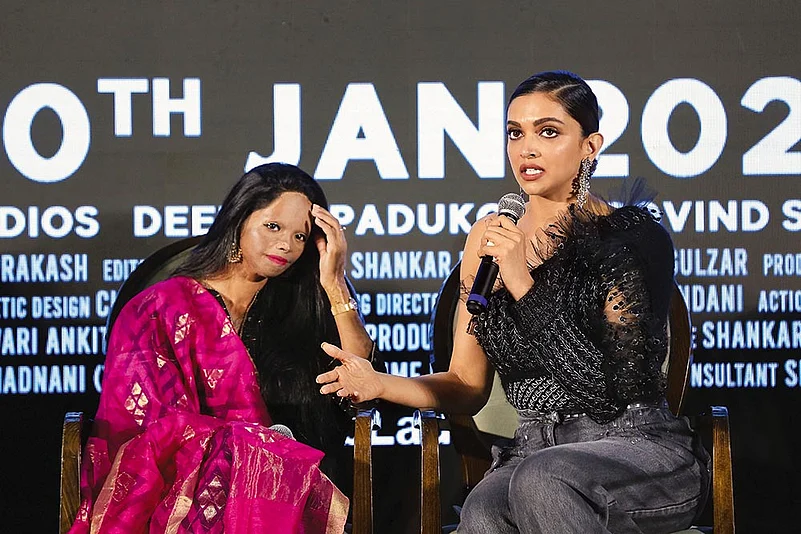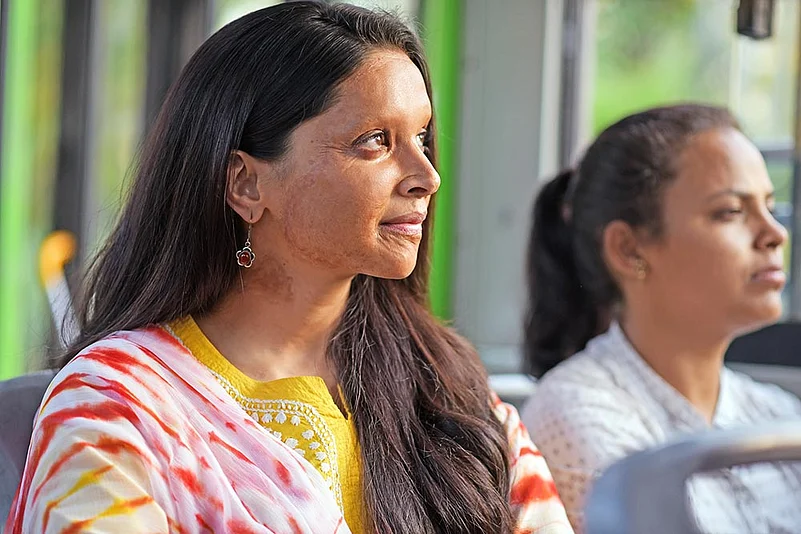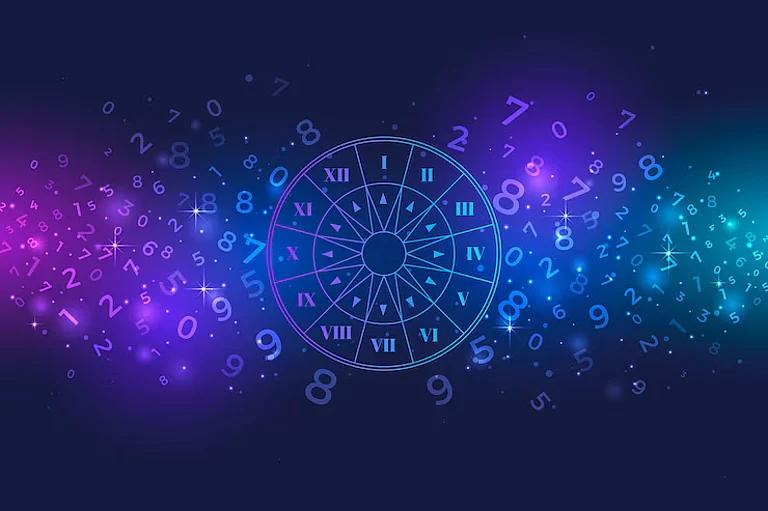Deepika Padukone, 34, is portraying acid attack survivor Laxmi Agarwal in her latest movie, Chhapaak. In a conversation with Giridhar Jha in Mumbai, India’s highest-earning actress talks at length about her career and life, revealing among other things as to what prompted her to turn producer, why she has no qualms about working with newcomers and what motivated her to fight depression in her personal life. Edited excerpts:
Director Meghna Gulzar’s upcoming Chhapaak must be an important film in your repertoire. Tell us how important it is for you as an actress, as a producer and as a woman? Also, how important do you think a biopic on the life of an acid attack survivor is for society at large?
It is an extremely important film in all of these aspects. Most importantly, as an actor because I think that is where I am able to have maximum influence and impact. It is important because while we are aware of acid violence in the country, I don’t think we are aware of its intensity or, for that matter, how frequently it happens. So while it is important to tell the story of the violence, what is even more important for us as filmmakers is to throw light on the spirit of these girls who fight back, whether it is Laxmi or some of the other acid attack survivors that I have had the good fortune of meeting. For me, the real takeaway is their spirit, not succumbing but coming out victorious after the attack and being an inspiration for all of us.
Acid attacks are still taking place in different parts of the country. Do you think Chhapaak will be able to disseminate a message, loud and clear, about the need to put an end to it, once and for all?
Oh, yes! I would like to believe that the film talks to the audience at different levels. It talks in terms of educating them about the impact of violence, it talks about the number of crimes in our country and also about the harsh reality that the girls have to deal with once they have been through something like this. It talks about their spirit and also about the judiciary. Meghna Gulzar has been able to weave all of these narratives and yet tell the story in an entertaining and engaging manner. I would like to believe that the film addresses all of these things.
Are you stepping out of your comfort zone with your latest film? Is it the most challenging and difficult role in your career yet?
I won’t say that I am stepping out of my comfort zone per se. But it has been the most challenging character I have played so far. It has definitely taken a toll on me, both physically and emotionally. Yes, it has also been my most difficult film till date for sure.
When Meghna Gulzar came to narrate the story, you reportedly agreed to do the film right away without even hearing the entire script. What was so special about this biopic that appealed to you?
Its message of the triumph of human spirit. Also, Meghna Gulzar’s honesty! I could sense her conviction and honesty as a filmmaker. I could see the honesty in her eyes, that she had lived with this story for long, that she was emotionally attached and that she was dying to tell the tale. I felt an instant emotional connection with the director.
You must have met Laxmi Agarwal before preparing for the role. How did you feel when you heard her story from her?
I met her several times, but I did not want her to narrate to me what she has gone through in her life. I met her to pick up the finer details and get anecdotes from her life. Those are the things I learnt after spending time with her.
What did you do to get into the skin of the character?
You can do a lot of reading, you can read the script many times and discuss with the director to prepare for the role. You can also do the look test or costume test. You do all these things for physical transformation, but the emotional transformation happens when you start playing the character. For me, the real transition happened between ‘action’ and ‘cut’. To go through what Laxmi has had to go through in her life happened as I was performing. It was something that you cannot really prepare for. You can only imagine what it might be like. You start discovering it only when you begin shooting.
These days, prosthetics and costumes can make an actor look like a splitting image of any person he or she is supposed to play onscreen, living or dead, but an actor has to emote, after all, in any biopic. Isn’t it?
You can look like a character by walking or talking like them. Physical transformation can be there, but the most important part is the emotional transformation. In my case, part of it happened in the pre-production process, but part of it also happened while I was performing the scenes. To prepare for it, you have to live and experience.
Ranveer Singh, your husband and co-star in many movies, is known to prepare meticulously for each of his roles. For the negative character of Allauddin Khilji in Padmaavat, for instance, he locked himself in a secluded apartment for months. Do you believe in that kind of preparation or method acting?
Any preparation or process for any actor is very personal. The process will not be same for every film. It varies from film to film depending on the requirements. Every actor has a different way of portraying a character. I don’t think there is one set of method or formula for approaching a particular role.
You have turned producer with Chhapaak. Were you contemplating setting up your production house before this film or was it an intuitive decision taken upon hearing its script?
It was intuitive, although turning producer was already on the cards—I was waiting for the right film and the timing worked out perfectly. We were getting ready as a production house and when Meghna narrated the subject, I felt I would be really proud to be associated with this film as a producer. I was willing to go the extra mile and put in extra effort and energy. I felt that it was the kind of film that needed additional support and backing.

You could have made a big-budget commercial extravaganza. Instead, you chose a small but serious and meaningful film for your launch pad as a producer. Will it be the template for movies produced under your banner?
I won’t say I will make only make serious films, but at the same time, I would like to produce meaningful movies. But every film does not necessarily have to be a social film; it can be something that will bring a smile to my face or make me reflect. Piku was not a big-budget blockbuster kind of movie, but had delicate and beautiful emotions. But also, it is too soon to tell—I will find out as we go along. I don’t want to restrict ourselves with what we do. However, my choices as a producer will be the same as those as an actor: follow my gut and be instinctive.
How do you plan to juggle the twin roles?
It is a very demanding job for an actress to be a producer, which becomes all the more challenging if she is also acting in your film. But you need to compartmentalise which role you are playing at which time. I, for one, did not get involved in production while shooting for Chhapaak was on, but as soon as it was over, I got involved in the process. You need to know where to draw the line and which hat you are wearing. If you have clarity on that, the rest is easy.
How important would the box office be as a producer?
As a producer, it is important to ensure that a film stays within the budget. It is extremely important to make financially viable films in a responsible manner. But a film like Chhapaak goes beyond numbers. As an actor and producer, it will be a success if we are able to impact people’s lives and usher in societal change. For me, the benchmark of its success is not the box office. What is relevant is the change we will bring about in society.
You have a number of exciting projects lined up this year. Cricket icon Kapil Dev’s biopic, 83 is the next to be released, where you are playing Romi Dev, Kapil’s wife.
Yes, I am playing Romi Dev, but it is a very small part. It barely has five or six scenes, but these are important in the narrative because you will see the emotional and vulnerable side of Kapil Dev in the movie through her character. Being the daughter of Prakash Padukone and having seen my mother’s involvement in my father’s journey of success, somewhere it was an emotional decision for me to play Romi Dev. I know my mother’s contribution to my father’s success and I wanted people to see that.
You are doing Chhapaak with Vikrant Massey and have also signed a film with Siddhant Chaturvedi as the lead. It is very brave of a superstar like you to do movies opposite new kids on the block…
I have always put films before anything else. I have never been lured by a movie because of its star cast, director or producer. I have been lured only by films that have compelling stories to tell, even if that means having to work with Siddhant or Vikrant. For me, it is a director’s call to cast actors and I will never question that. I truly believe that Siddhant and Vikrant are the right actors for their parts. Nothing should be more important than the film itself.
You have attained a position which might be intimidating for certain superstars who usually avoid working with female counterparts on one pretext or the other.
I have not thought about it and I cannot answer on behalf of others. Unse pooochhiye (ask them).
More than 12 years have elapsed since you made your Hindi cinema debut with Om Shanti Om (2007). How do you look back at your journey from there to the top?
I have learnt a lot and I have evolved during this period. Each film and character has influenced my life.
But there was a time in your career when your movies were not working and you were fighting depression. How did you handle failure in that period?
The two phases were not linked at all. My career not going anywhere had a completely different timeline. Depression happened when everything was great on the professional front. I am someone who will always reflect and think back as to why something did not work out for me, why I made certain choices, what I learned from those experiences and what was my takeaway. I don’t get bitter; I always reflect, think, evaluate and I evolve, so I learned a lot during that period.
You are a celebrity who spoke openly about experiencing depression and many lauded you for it. But during that period, did you ever think of giving it all up and returning to your hometown Bangalore?
Of course, I thought about giving up everything. In those days, I did not have the strength to wake up or go to work. I did not have the motivation to do anything. At the peak of my depression, I had all these thoughts. I did think of returning to Bangalore, but beyond all that, there was a voice inside me that kept telling me, “Be patient”, “This too shall pass” and “You can fight this”. Negative thoughts were there, but so was a deeper and louder voice telling me that I would come out of it.
Meghna Gulzar and you have collaborated on Chhapaak. Is the industry a better place to work for a woman than what it was when you had started off?
I was too naive at that time to understand what the environment might have been like, but I started my career with a woman director (Farah Khan). So I cannot really comment on what the environment was like back then. Maybe, many women did not want to be in this profession. But today, there are women in almost every department. It has happened partly because women now want to do different things and partly because society is more accepting now.
Content has become the key to success more than ever before. Do you think audiences have evolved and the star system will eventually be on its way out?
Absolutely. We are able to do what we do because there is a lot of demand. Two or three years ago, many small-budget movies with no big stars did very well at the box office—it did not matter who the star was in those films. I think we are headed for an era where the star system will finally come to an end.
How soon will it happen?
I am not an astrologer. I cannot say how soon, but we are not far either.
After XXX: Return of Xander Cage (2017), do you have another Hollywod project in the pipeline?
No, I am not involved in any foreign production at the moment. At this point, I don’t like to differentiate between Hollywood projects and other films. I think cinema is global today. Even a small film from a small country gets global notice with the kind of platforms we have today. Chhapaak is one such film—it is globally relevant.
A shorter, edited version of this appeared in print






















